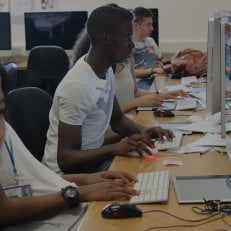Misconceptions about capital campaign feasibility studies
When undertaking a large-scale capital project for a nonprofit organisation, you might not have enough money to cover all costs. As a result, you will need to secure external funding. Securing funding is no easy task, especially for large-scale projects. One of the most common options to raise significant capital income is a capital campaign.
A capital campaign is a high-risk, high-gain fundraising method. However, you need to gauge if what you’re fundraising for is viable and an excellent opportunity for your organisation. For this reason, capital campaign feasibility studies are conducted. These studies are crucial to the success of a campaign, but many people don’t view them as a good option primarily because of misconceptions.
We will be clearing some of these misconceptions in this article. Read on below to learn more.
A Capital Campaign Feasibility Study Determines a Fundraising Goal
Though there is some truth to the statement, it’s still incredibly misleading.
A feasibility study will enable you to establish a provisional fundraising target. It will do so by identifying likely funders and prospects for your project and likely income totals from each source. The study will give you the confidence to proceed with the provisional target but continue to evaluate until public launch. You don’t want to publicize a figure you can’t achieve. Remain flexible, you may be able to raise more than originally envisaged.
Also, the truth is, a feasibility study isn’t just about the end goal, but is necessary to construct the framework of a campaign. A feasibility study will identify:
? What you are raising the money for and why (your case for support)
? Who will take the leadership duties throughout the campaign
? If the campaign is done at an advantageous time (such as having no competition with other organisations)
? If the campaign itself is logistically sustainable and a risk management plan
? The marketability of your nonprofit organisation
? Recommendations for staffing
A Capital Campaign Feasibility Study Will Tell Us Nothing but Things We Already Know
If you already have a good infrastructure backed by a database of supporters and major donors you might think that a feasibility study can be skipped. You already know your donors anyway. However, you must not do this because a feasibility study isn’t just about results—it’s also about donor relationships and long-term sustainability.
In essence, feasibility studies offer an opportunity to foster stronger relationships between your organisation and donors. You can test whether your project and messaging resonate with key donors and stakeholders. By reaching out to donors and seeking their feedback you will strengthen their engagement to your cause and confirm you are on the right track (and that your campaign is more likely to succeed).
A Capital Campaign Feasibility Study delays getting on with the actual fundraising
You may be worried that with significant money to be raised you need to get on with the fundraising. But preparation is absolutely essential to fundraising.
A Feasibility Study isn’t just about producing a report that sits on a shelf, it’s a crucial part of your preparation. It can be thought of as a development phase during which you ensure the foundations for fundraising success are in place.
Conclusion
Securing funding for a project is no easy task, especially for a large capital campaign. To lessen the workload, your best course of action would be to work with a fundraising consultant to better prepare for your campaign.
If you’re looking for fundraising companies for nonprofits, Craigmyle Fundraising Consultants is the one for you! We provide different fundraising services, from feasibility studies to revenue fundraising, trust fundraising, social investments, and many more. Contact us today to learn more!





